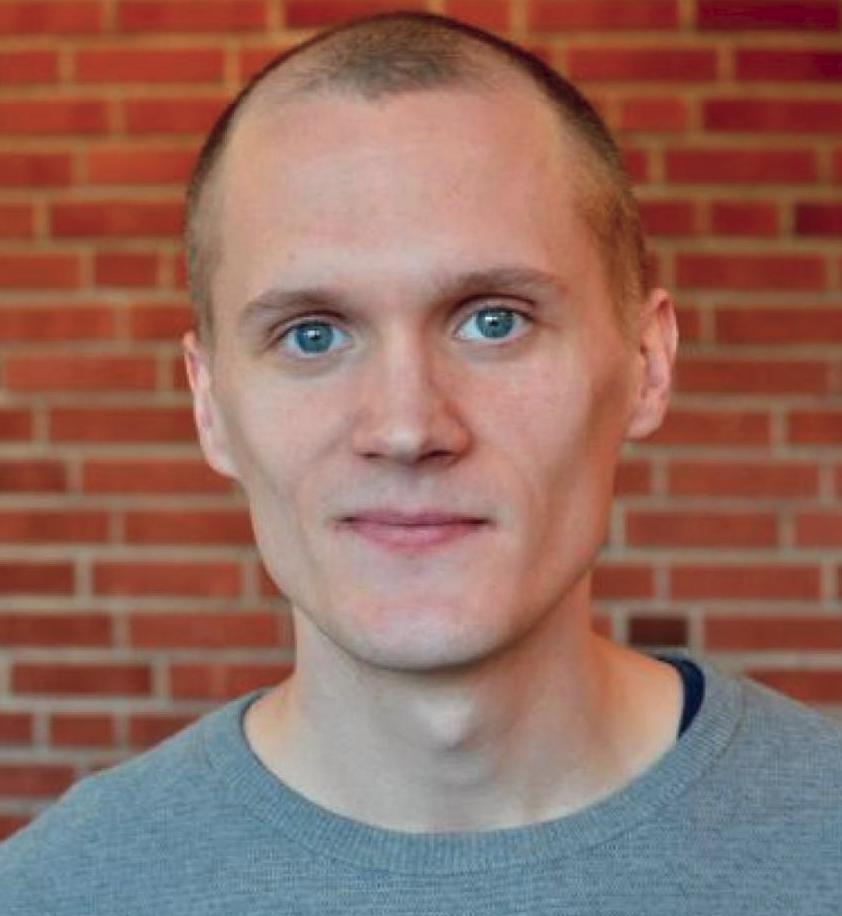About
Short version: Senior ML researcher at RISE – Co-founder of Climate AI Nordics  – Part of the GEO AI4EO working group – Affiliated with CLIMES – Part of the Computing within Limits community
– Part of the GEO AI4EO working group – Affiliated with CLIMES – Part of the Computing within Limits community
Long version: I’m a senior machine learning researcher at RISE Research Institutes of Sweden within the the RISE Deep Learning Research Group (RIDR), where my main research interest is to develop ML methods for a broad range of environmental applications (e.g. climate adaptation and humanitarian aid causes). I’m a co-founder of the research network Climate AI Nordics, am affiliated with the Swedish Centre for Impacts of Climate Extremes (climes), and am part of the GEO AI4EO working group.
If interested in my publications, refer to this page, and/or my google scholar. My supervision work is summarized in this page. See this page for a selection of my past and ongoing projects. This page lists a selection of invited talks as well as media and public communication. This page summarizes my received honors, awards and review work.
Before joining RISE, I conducted my doctoral studies in computer vision at the Faculty of Engineering, Lund University, under the supervision of Cristian Sminchisescu. In my research, I applied deep reinforcement learning to computer vision tasks such as object detection and active vision, with the aim of making visual recognition systems more flexible and adaptive. I successfully defended my PhD thesis Reinforcement Learning for Active Visual Perception in June, 2021.
I’m an advocate for facing our difficult future (and present, for many), collectively and individually, so that we can try to reduce harm and suffering. I may write more about this under my personal page at some point, but for anyone interested in learning more about what is difficult about our future, I warmly recommend the podcasts The Great Simplification, Breaking Down: Collapse (and the follow-up podcast Building Up: Resilience), Planet: Critical, and Entangled World. Two other short and self-contained podcasts that I also recommend are Power: Limits and Prospects for Human Survival and Tipping Point: The True Story of “The Limits to Growth”. I also try to summarize some reasons why in this video.
News
Feb 2026: Issa Tingzon joined RISE Lund as my PhD student in the doctoral project ML-Earth: Robust and data-efficient machine learning for Earth observation funded by the Swedish Foundation for Strategic Research! Issa was previously working at organizations such as the World Bank and Unicef, focusing on ML-EO for socioeconomic development, humanitarian assistance, climate resilience, and disaster response.
Dec 2025: Paper accepted at AAMAS 2026 (25% acceptance rate): DiffVAS: Diffusion-Guided Visual Active Search in Partially Observable Environments. Camera-ready paper and code out soon!
Dec 2025: Financing obtained for 5-year PhD project! Project title (tentative): Breeder co-pilot - Optimizing plant breeding with AI. I will lead the AI work in the project, among other things by being the co-supervisor of an industrial PhD student at Lantmännen. The project is led by Aakash Chawade at the Swedish University of Agricultural Sciences. Project start: Spring 2026. Funded by SLU Grogrund.
Nov 2025: We’re organizing a Climate AI Nordics after work social at EurIPS!
Nov 2025: Four posters accepted at various EurIPS 2025 workshops! More info about this later!
Oct 2025: New preprint summarizing our work on SatML for grazing detection, jointly with the Swedish Board of Agriculture! Code and models are available. Our work will be presented at ELLIS UnConference Workshop - AI for Earth and Climate Sciences and AICC: Workshop on AI for Climate and Conservation at EurIPS 2025!
Oct 2025: Glad to have joined the Computing within Limits community!
Sep 2025: Thrilled to be in the organizing committee of the EurIPS 2025 accepted workshop AICC: Workshop on AI for Climate and Conservation (Call for Participation deadline Oct 10).
April 2025: Funding obtained for the upcoming 4-year doctoral project ML-Earth: Robust and data-efficient machine learning for Earth observation from the Swedish Foundation for Strategic Research. I will be PI and main supervisor in this project (starting Dec 2025), and co-supervisor will be Prof. Yifang Ban.
March 2025: Invited presentation about Climate AI Nordics to the Young European Associated Researchers network (YEAR).
Feb 2025: Funding obtained from the Swedish National Space Agency for the project AI-based remote sensing for monitoring nature restoration and landscape elements at farm level. I will be PI in this 2-year project, which starts in April 2025.
Dec 2024: We’re organizing the 2025 Nordic Workshop on AI for Climate Change in May 2025, the first of a hopefully annual series of workshops/conferences hosted by Climate AI Nordics!
Dec 2024: I’ve joined the GEO AI4EO working group, led by Prof. Yifang Ban.
Dec 2024: Funding obtained from FORMAS for the project PRACTICAL WISION – Automatically identifying and mapping different weed species through the practical application of AI-based image analysis models. I will be the AI work package leader in this 2-year project, which starts in January 2025.
Nov 2024: Gave a presentation and participated in a panel discussion on the theme Is technology our only salvation from climate collapse? at Internetdagarna 2024. Thanks for the invite, Paulina Modlitba, and nice discussion, Isabelle McAllister!
Oct 2024: Excited and proud to have founded the new Nordic research network Climate AI Nordics, together with my amazing colleague Olof Mogren! Welcome to join the network!
Sept 2024: Paper accepted at NeurIPS 2024! Check out our work on aerial exploration across modalities, relevant e.g. for search-and-rescue operations. Code is available!
Aug 2024: Participated in a panel discussion titled Science communication and AI – threats, challenges and opportunities, at the World Water Week in Stockholm.
Aug 2024: Gave a presentation for Sally Dobberman on the topic AI considerations under post-growth scenarios. Thanks for the invitation!
Aug 2024: As of this month, I’m affiliated also with the Swedish Centre for Impacts of Climate Extremes (CLIMES) funded by the Swedish Research Council.
June 2024: ML models for cloud optical thickness estimation that I developed have now been orbiting in space!
May 2024: New preprint summarizing our work in the Vinnova-funded project Towards efficient computational fluid dynamics simulations with physics-informed machine learning! Code and visualizations are available.
Apr 2024: Funding obtained from the Swedish Energy Agency for the project AI-based Power Production Models for Increased Wind Farm Efficiency. I will have an advisory role in this 2-year project, which starts in May 2024.
Apr 2024: Our work on ML for cloud optical thickness estimation will be presented as an oral at the 2nd Workshop on Machine Learning for Remote Sensing at ICLR 2024, in Vienna!
Mar 2024: New preprint on the impacts of color and texture distortions on Earth observation data in deep learning setups! This work will be presented in May by Martin Willbo on the 2nd Workshop on Machine Learning for Remote Sensing at ICLR 2024, in Vienna.
Mar 2024: I was recognized as Top 30 reviewer of the ISPRS Journal of Photogrammetry and Remote Sensing for 2023.
Feb 2024: I’m one of the authors of the report NBS Initiative Position Paper: Embracing Nature-Based Solutions for Sustainable Development, which will be presented at the ECTP conference 2024.
Jan 2024: Our work on ML for cloud optical thickness estimation has now been published in Remote Sensing! Code and data are available!
Jan 2024: Our abstract on High-tech for low-tech was accepted at the International Degrowth Conference 2024!
Oct 2023: Funding obtained from Vinnova for the project Towards efficient computational fluid dynamics simulations with physics-informed machine learning. I will be PI in this 1-year project, which starts in November 2023.
Sept 2023: I was the main organizer of the hackathon Walking on Thin Clouds in Stockholm, where participants explored our recently developed ML methods for cloud optical thickness estimation in Sentinel-2 imagery. It was a really fun day!
Apr 2023: Our work on ML for dense streamflow forecasting was accepted at SAIS 2023! Code is available! A video overview is given here.
Mar 2023: Our work titled Aerial View Localization with Reinforcement Learning: Towards Emulating Search-and-Rescue was accepted for the 1st Workshop on Machine Learning for Remote Sensing at ICLR 2023, in Kigali, Rwanda! Code and models are available! A video overview is given here.
Oct 2022: My work on AI-based mapping of Swedish wetlands, for the Swedish Environmental Protection Agency, got covered in the Swedish magazine Miljö & utveckling.
Sept 2022: Our work titled Few-shot Bioacoustic Event Detection using a Prototypical Network Ensemble with Adaptive Embedding Functions has been accepted at DCASE 2022! The method came in third place among the team submissions in the few-shot bioacoustic event detection task during the DCASE 2022 challenge. Code is available.
Sept 2022: I was on a Swedish podcast discussing AI for tackling climate change!
Dec 2021: New preprint out, covering our work on embodied learning for lifelong visual perception!
Sept 2021: Our work titled Generating Scenarios with Diverse Pedestrian Behaviors for Autonomous Vehicle Testing has been accepted at CoRL 2021! Code is available! A video overview can be seen here.
Sept 2021: I started working as an ML researcher at RISE Research Institutes of Sweden, in Lund. I’m part of RISE’s deep learning research group (RIDR).
June 2021: On June 10th, I successfully defended my doctoral thesis Reinforcement Learning for Active Visual Perception (a video overview can be seen here). Looking forward to a summer break before starting as an ML researcher at RISE in September!
